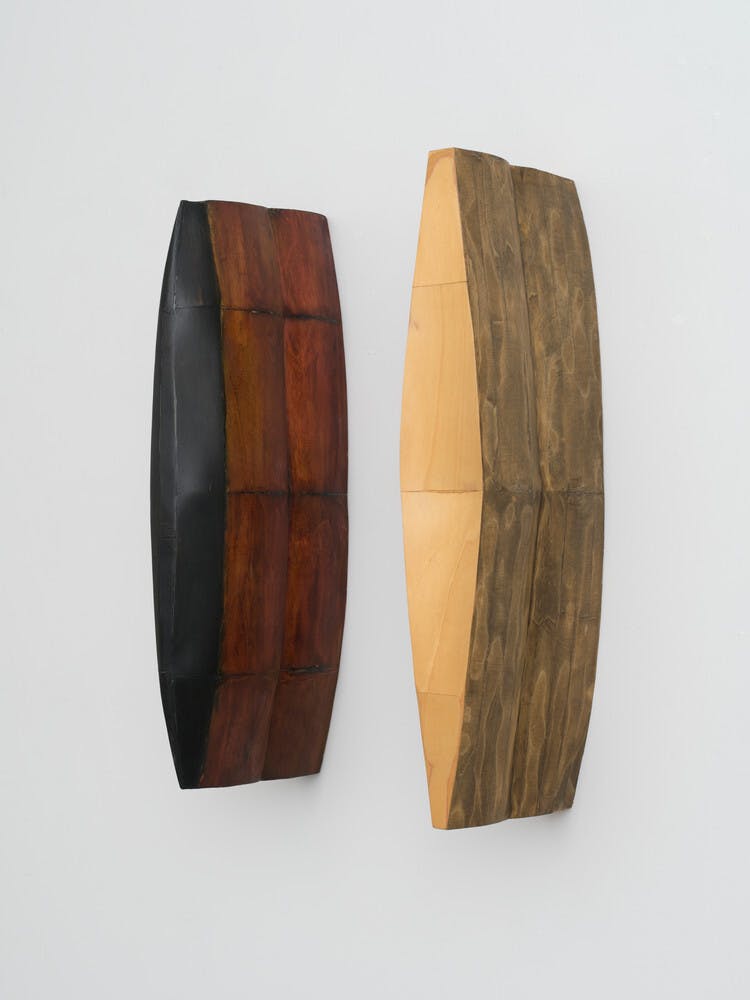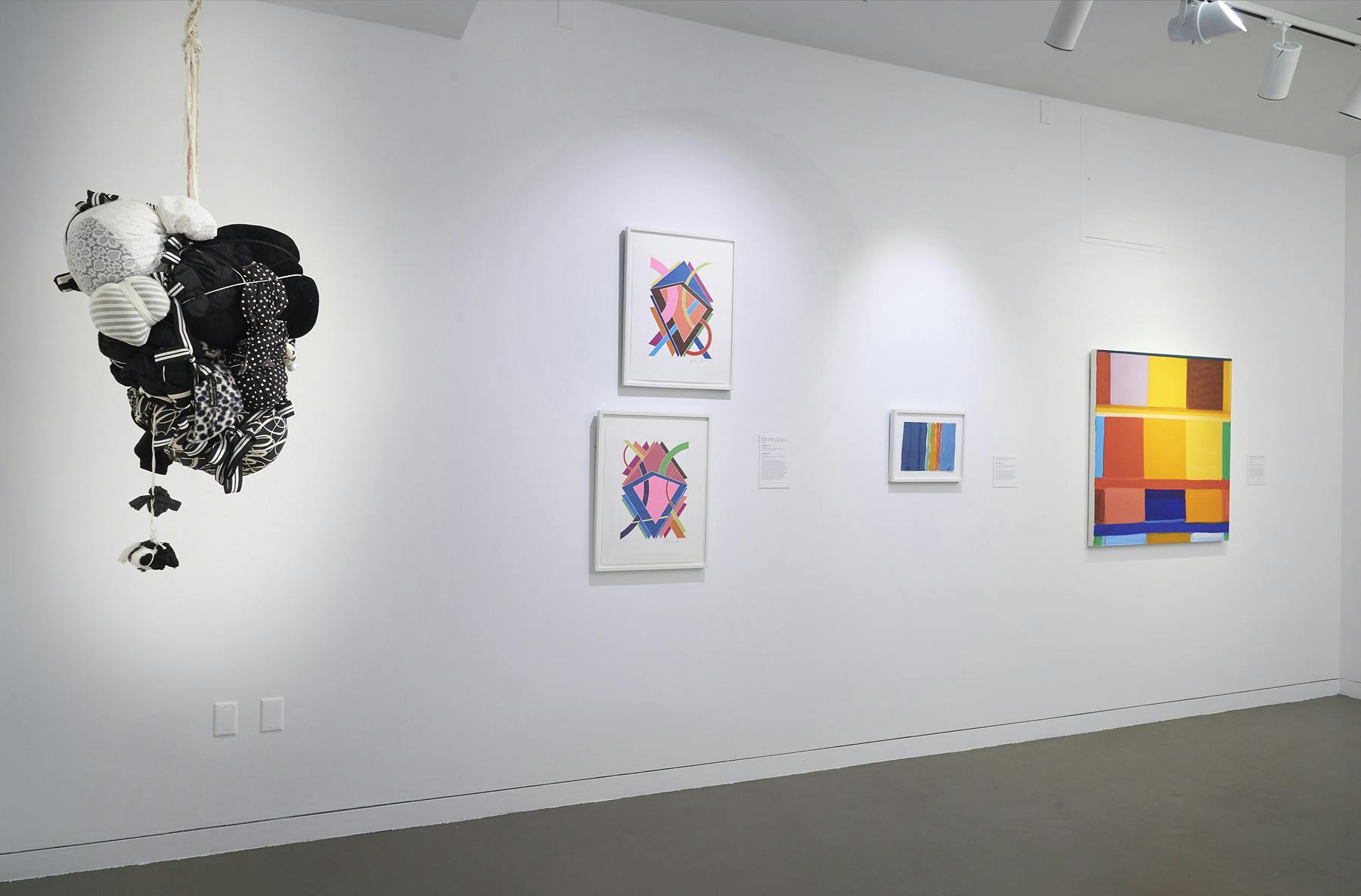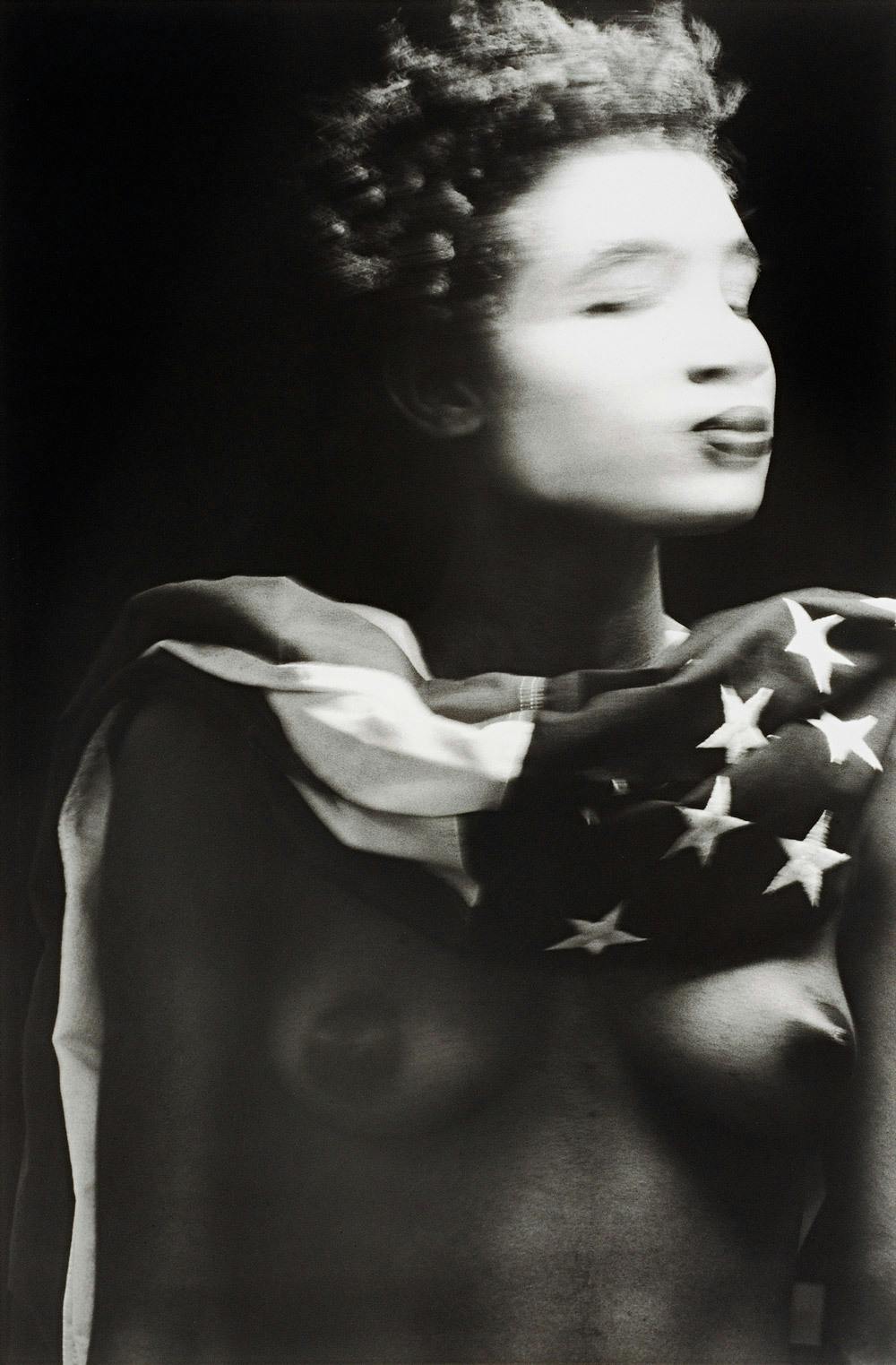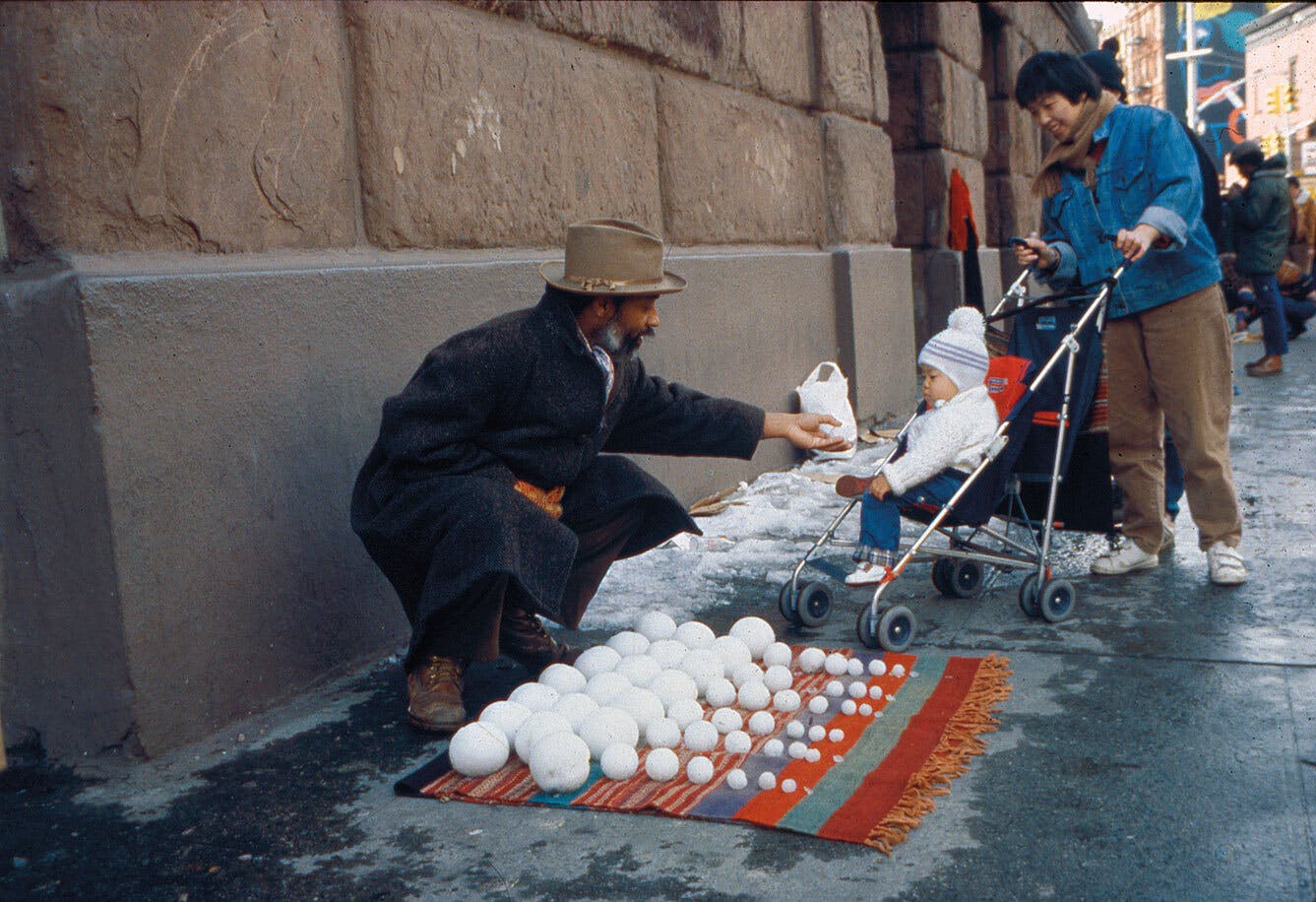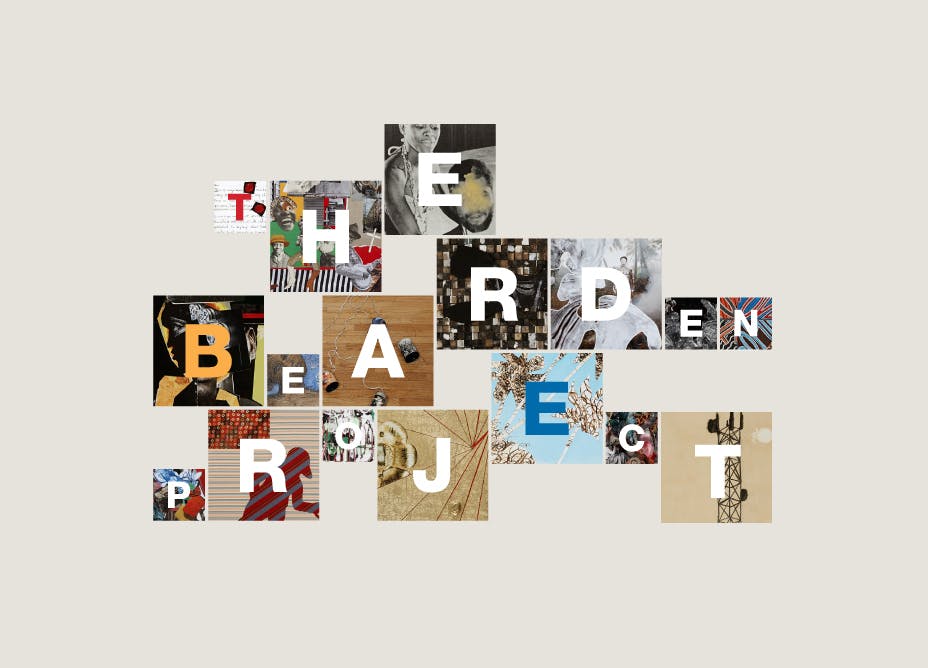Terry Adkins
(1953–2014)1982–83 Artist in ResidenceHonoring the legacies passed down through sound and music, Terry Adkins traverses the boundaries between performance, installation, and sculpture.
Biography
Blurring boundaries between artistic media, Terry Adkins studies and transforms the personal, collective, and psychological properties of found objects.
As a child in Washington, DC, Adkins was surrounded by music. His parents both played multiple instruments—a skills they passed onto Adkins—and he listened to songs by the likes of John Coltrane and Nina Simone. While he demonstrated a penchant for drawing at a young age, he intended to study history and become a lawyer. Upon arriving at Fisk University, however, he found himself drawn to visual art, particularly printmaking. He studied under David Driskell and Martin Puryear and came into contact with Aaron Douglas, a professor emeritus. During his graduate studies, he shifted to sculpture. He began using paper, wood, and metal, familiar materials from printmaking processes. Throughout his schooling and residencies at the Studio Museum and MoMA PS1, he continued to play music and experiment with installation and performance.
Interested in the transformative capabilities of found materials, Adkins aimed to bridge the realms of music and sculpture by creating works that are both monumental objects and functional instruments. Adkins sought “to make these material things as immediate and ethereal as music. And the music I pursued, I tried to make it as visceral and physical—almost approaching matter. Trying to make both of the things do what they naturally are not inclined to do was a challenge.”1 In 1986 while completing a residency in Zürich, he founded Lone Wolf Recital Corps. The group stages multidisciplinary performances, or “recitals,” that present a mix of music, recitation, video, and movement. The Corps performed in conjunction with his exhibitions, honoring historical and musical Black figures such as George Washington Carver, W.E.B. Du Bois, and Bessie Smith. Adkins passed away from heart failure in 2014.
Adkins earned a BS from Fisk University, MS from Illinois State University, and MFA from University of Kentucky. He received a National Endowment for the Arts Fellowship (1986); New York Foundation for the Arts Fellowship (1995); and Jesse Howard, Jr./Jacob H. Lazarus–Metropolitan Museum of Art Rome Prize (2009). The Studio Museum has presented his work in exhibitions such as The Blues Aesthetic: Black Culture and Modernism (1990); Required Nuance: Three Contemporary Sculptors (1995); and Under Another Name (2014).
Exhibitions and Events
Terry Adkins
(1953–2014)1982–83 Artist in ResidenceHonoring the legacies passed down through sound and music, Terry Adkins traverses the boundaries between performance, installation, and sculpture.
Magus and Adnachiel, 1988
Biography
Blurring boundaries between artistic media, Terry Adkins studies and transforms the personal, collective, and psychological properties of found objects.
As a child in Washington, DC, Adkins was surrounded by music. His parents both played multiple instruments—a skills they passed onto Adkins—and he listened to songs by the likes of John Coltrane and Nina Simone. While he demonstrated a penchant for drawing at a young age, he intended to study history and become a lawyer. Upon arriving at Fisk University, however, he found himself drawn to visual art, particularly printmaking. He studied under David Driskell and Martin Puryear and came into contact with Aaron Douglas, a professor emeritus. During his graduate studies, he shifted to sculpture. He began using paper, wood, and metal, familiar materials from printmaking processes. Throughout his schooling and residencies at the Studio Museum and MoMA PS1, he continued to play music and experiment with installation and performance.
Interested in the transformative capabilities of found materials, Adkins aimed to bridge the realms of music and sculpture by creating works that are both monumental objects and functional instruments. Adkins sought “to make these material things as immediate and ethereal as music. And the music I pursued, I tried to make it as visceral and physical—almost approaching matter. Trying to make both of the things do what they naturally are not inclined to do was a challenge.”1 In 1986 while completing a residency in Zürich, he founded Lone Wolf Recital Corps. The group stages multidisciplinary performances, or “recitals,” that present a mix of music, recitation, video, and movement. The Corps performed in conjunction with his exhibitions, honoring historical and musical Black figures such as George Washington Carver, W.E.B. Du Bois, and Bessie Smith. Adkins passed away from heart failure in 2014.
Adkins earned a BS from Fisk University, MS from Illinois State University, and MFA from University of Kentucky. He received a National Endowment for the Arts Fellowship (1986); New York Foundation for the Arts Fellowship (1995); and Jesse Howard, Jr./Jacob H. Lazarus–Metropolitan Museum of Art Rome Prize (2009). The Studio Museum has presented his work in exhibitions such as The Blues Aesthetic: Black Culture and Modernism (1990); Required Nuance: Three Contemporary Sculptors (1995); and Under Another Name (2014).

